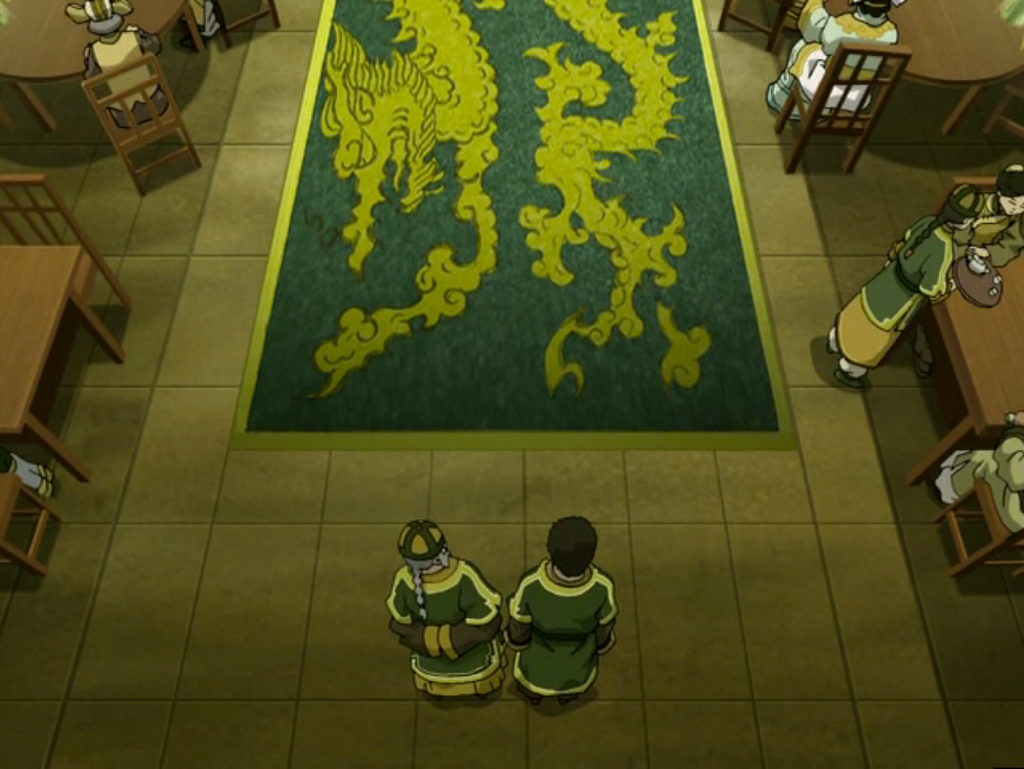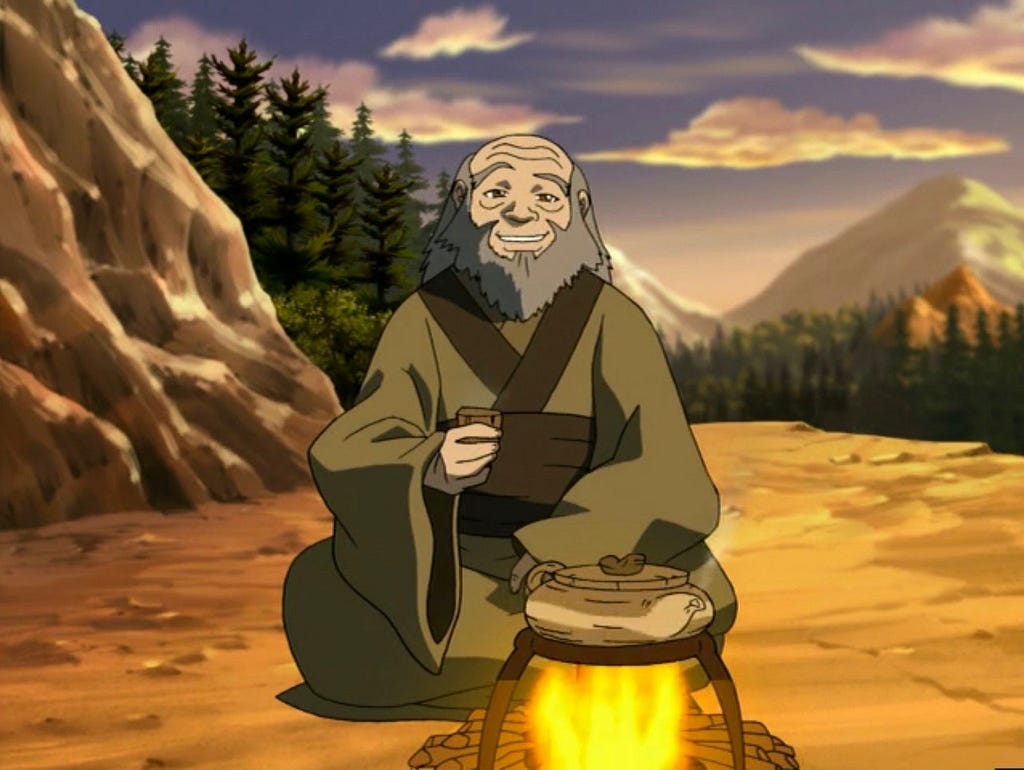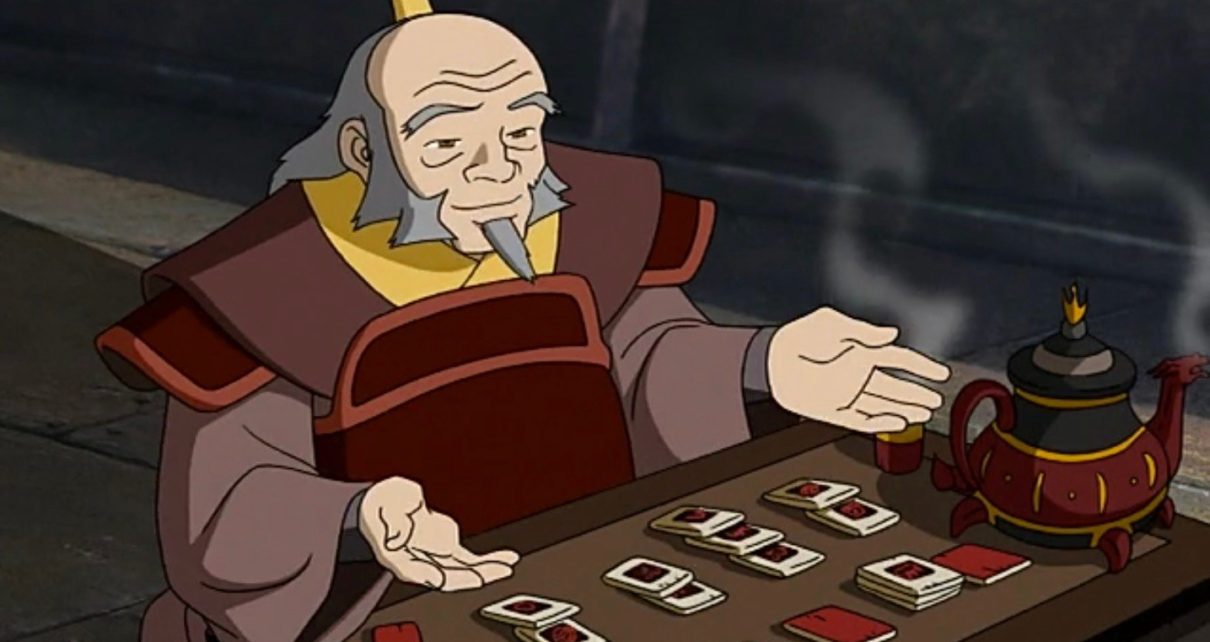
Editor’s Note: This week, we mark the summer solstice — and, with it, the element of power. On this inevitably sultry, sunny, sweltering occasion, join The Dot and Line as we celebrate our inaugural Firebending Week, turning our focus to the flaming passions of some of Avatar: The Last Airbender’s most famous, and infamous, Fire Nation citizens. And what better way to start than with some good old avuncular advice from everyone’s favorite Dragon of the West? We recently uncovered this letter from the records of Fire Lord Zuko that you might want to see…
To my nephew, the Fire Lord Zuko,
As I settle into the palace I’ve dreamed of living in for so long, I am struck by how dreary and lonely this place is, and find myself missing the simple daily busyness of my tea shop. It occurs to me that perhaps our great nation could do with a little less warfare and a little more tea. Do you agree? I am sure that wherever you are on your journey, you could do with a good pot of tea yourself as you continue your search.
You must be tired of me writing to you about tea, but as a wise old man once said, being sick of tea is like being sick of breathing. After all, the making of tea is much like the making of a man — no man or cup of tea are identical, and the character of each is influenced by the tiniest of choices. The proper brewing of both man and leaf takes equal parts knowledge and instinct, and while I won’t deny you have much of the latter, it’s always been my pleasure to share with you what I’ve gained in the former over my many years. Let us start with the basics.
Brewing the perfect tea requires just the right balance between water, heat, leaf, and time. The very first thing to be done when beginning a proper cup of tea is to choose the appropriate water. It is best to use water that is low in minerals and has been adequately filtered. Water that is too hard can make an inhospitable environment for the brewing leaves.
In water, heat, leaf, and time, brewing perfect tea requires balance.
The next step is to heat the water. Much like an overeager and underprepared prince I once knew, many new and overly zealous tea brewers are in such a rush to get started that they make a mess of things, going about them in completely the wrong order. They make the common mistake of adding their tea leaves directly to cold water and then heating the two together. Without the proper guidance, in a short time they will find themselves with a pot of tea that is too overpowering to swallow. If exposed to quick and direct heat, both tea leaves and young men will find themselves overcooked. It is best to use water that is already hot in order to gradually warm the leaves, rather than risk that they will be burnt by boiling water.
It is also paramount that the water for your tea is heated by flame or electricity. Anything else is such a severe act of disrespect that you might as well throw your tea leaves straight into the garbage!
While the water is warming, select and prepare your tea leaves. Regardless of which variety of tea you choose—although jasmine is my favorite—loose leaf tea is always best. Most leaves found in pre-prepared bags are broken and processed, dulling their flavor. These damaged leaves crumble under heat and pressure, and can make only bitter leaf juice. If you are in a desperate situation and no loose tea can be found, at the very least search for a bag that is loosely packed with whole leaf tea. The best of these often come in bags of pyramid-shaped fabric.

You may be surprised to hear me say this, but when it comes to tea leaves, it is possible to have too much of a good thing. One mounded teaspoon of leaves is all you need to make a single cup of tea—though of course those who are particularly depleted of chi, enjoy a bitter flavor, or have resilient digestive systems might choose to use a bit more than that. You can pour the tea leaves into an infuser or directly into your cup or pot.
As a general rule, it is best to heat the water until it is just short of boiling—one must not be overzealous, or one risks the leaves becoming cooked. However, if you are brewing a black tea, particularly one that is spiced, the water should be brought to a rolling boil before being immediately removed from the flame. If the water temperature is too low, the tea will not reach its full flavor—much like a man with an easy and tepid life will never be pushed to find his destiny. But if pushed too hard, both man and tea will become too bitter or astringent.
When your water has reached the right temperature, pour it directly over the leaves and wait. Common wisdom says that tea should sit for three to five minutes, but for certain brews it might take a bit longer to achieve your desired color or taste. Like the path to one’s destiny, the steeping of tea ultimately relies heavily on instinct. I advise tasting the tea once every 30 minutes and when the taste suits you, strain the tea or remove the infuser from the water.

Sometimes, Zuko, even after following all of the best advice and trusting your own instincts, you won’t end up with the cup of your dreams. Despite all your preparation, you can never be entirely certain how things will turn out. But I hope that by following my advice, you’ll end up with the cup of tea that best suits you.
In the end, you’ll find that the experience of making something your own way is much more fulfilling than accepting what someone else has made for you. Perhaps, as you taste your unfinished tea while waiting for it to brew, you will find that the flavor you were looking for is not quite the one you’d imagined you wanted.
Remember what a wise old man once said: tea is as fundamental to life as breathing. Remember, too, where it is your power truly lies.
Wishing you a safe journey and a speedy return,
Uncle Iroh, Interim Fire Lord
Thanks for reading The Dot and Line, where we talk about animation of all kinds. Don’t forget to ❤ this article and follow us on Twitter and Facebook.





